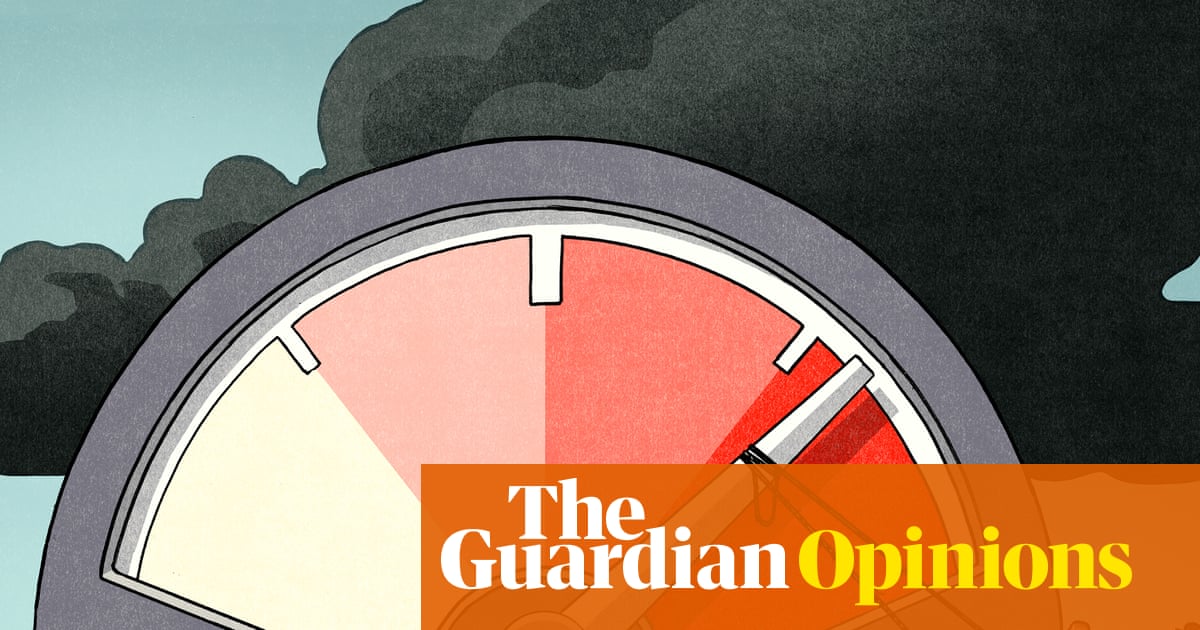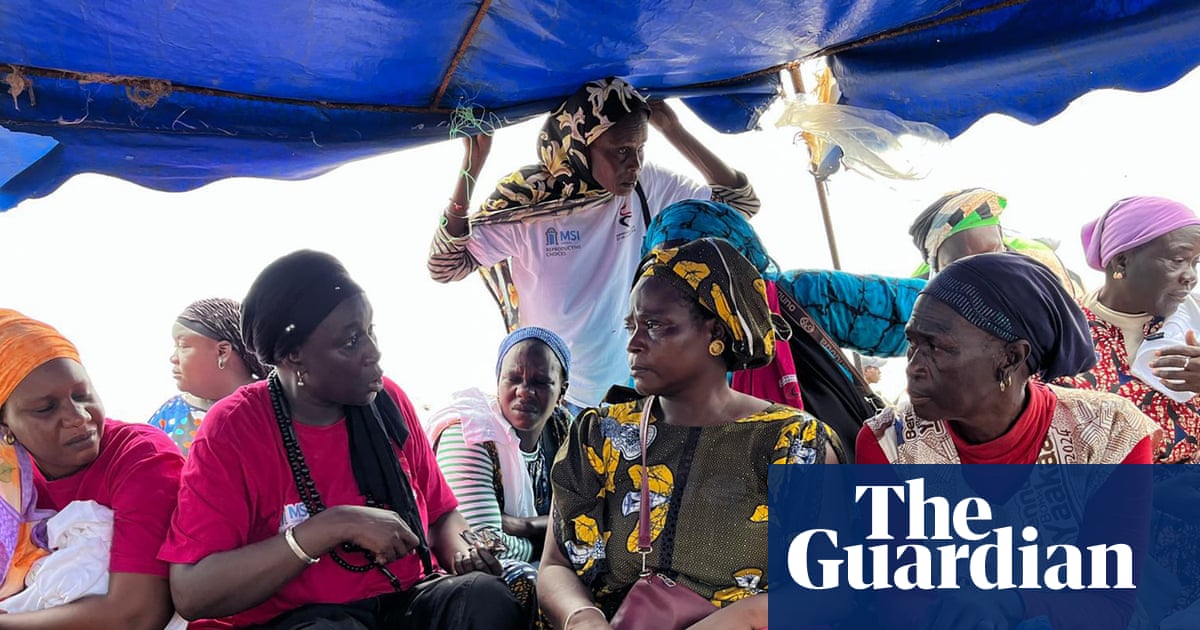A leading UN expert is calling for criminal penalties against those peddling disinformation about the climate crisis and a total ban on fossil fuel industry lobbying and advertising, as part of a radical shake-up to safeguard human rights and curtail planetary catastrophe.
Elisa Morgera, the UN special rapporteur on human rights and climate change who presents her damning new report to the general assembly in Geneva on Monday, argues that the US, UK, Canada, Australia and other wealthy fossil fuel nations are legally obliged under international law to fully phase out oil, gas and coal by 2030 – and compensate communities for harms caused.
Fracking, oil sands and gas flaring should be banned, as should fossil fuel exploration, subsidies, investments and false tech solutions that will lock in future generations to polluting and increasingly costly oil, gas and coal.
“Despite overwhelming evidence of the interlinked, intergenerational, severe and widespread human rights impacts of the fossil fuel life cycle … these countries have and are still accruing enormous profits from fossil fuels, and are still not taking decisive action,” said Morgera, professor of global environmental law at the University of Strathclyde.
“These countries are responsible for not having prevented the widespread human rights harm arising from climate change and other planetary crises we are facing – biodiversity loss, plastic pollution and economic inequalities – caused by fossil fuels extraction, use and waste.”

Island nations, Indigenous and other vulnerable communities – who have benefited least from fossil fuels – now face the worst and compounding harms caused by the climate crisis and other environmental harms linked to their extraction, transport and use for energy, fuel, plastics and synthetic fertilizers.
The report points to a mountain of evidence on the severe, far-reaching and cumulative damage caused by the fossil fuel industry – oil, gas, coal, fertilizers and plastics – on almost every human right including the rights to life, self-determination, health, food, water, housing, education, information and livelihoods.
Morgera makes the case for the “defossilization” of our entire economies – in other words the eradication of fossil fuels from all sectors including politics, finance, food, media, tech and knowledge. The transition to clean energy is not enough to tackle the widespread and mounting harms caused by the fossil fuels, she argues.
In order to comply with existing international human rights law, states are obliged to inform their citizens about the widespread harms caused by fossil fuels and that phasing out oil, gas and coal is the most effective way to fight the climate crisis.
People also have the right to know how the industry – and its allies – has for 60 years systematically obstructed access to this knowledge and meaningful climate action by peddling disinformation and misinformation, attacks on climate scientists and activists, and by capturing democratic decision-making spaces including the annual UN climate negotiations.
“The fossil fuel playbook has undermined the protection of all human rights that are negatively impacted by climate change for over six decades,” said Morgera in the imperative of defossilizing our economies report.
States must ban fossil fuel ads and lobbying, criminalize greenwashing (misinformation and misrepresentation) by the fossil fuel industry, media and advertising firms, and enforce harsh penalties for attacks on climate advocates who are facing a rise in malicious lawsuits, online harassment and physical violence.
Communities across the world are facing growing threats from sea level rise, desertification, drought, melting glaciers, extreme heat, floods, and other climate-related impacts. This is on top of the deadly air pollution, water scarcity, biodiversity loss, and forced displacement of Indigenous and rural peoples associated with every stage of the fossil fuel lifecycle.
Meanwhile, fossil fuel and petrochemical companies have benefited from huge profits, taxpayer subsidies, tax avoidance schemes and undue protection under international investment law – without ever reducing energy poverty and economic inequalities. In 2023, oil and gas companies globally earned $2.4tn, while coal companies pocketed $2.5tn, according to the report.
Removing fossil fuel subsidies, estimated to have topped $1.4tn for OECD members and 48 other countries in 2023, would alone reduce emissions by up to 10% by 2030.
Redirecting these subsidies would help wealthy fossil fuel-producing states fulfill their legal obligations to aid developing countries to phase out fossil fuels – and provide financial and other remedies for the widespread human rights violations and environmental damage they have caused – and continue to cause.
The compensation could also be funded by enforcing penalties for damages caused by fossil fuel companies, and cracking down on tax evasion and avoidance by the industry, as well as introducing wealth and windfall taxes. States could – and should – require the industry to finance climate adaptation, mitigation and loss and damage through climate superfunds or other mechanisms that are directly accessible to affected communities.
Land unjustly appropriated for fossil fuel operations should be cleaned up, remediated and returned to Indigenous communities, people of African descent and peasants, if they want it back, or they should be fairly compensated, Morgera argues.
The report lays out the human rights case for decisive and transformative political action to limit the pain and suffering from the climate crisis. The recommendations offer a glimpse at a world in which the basic rights of all people are prioritized above the profits and benefits enjoyed by a few, but will probably be dismissed by some as radical and untenable.
“Paradoxically what may seem radical or unrealistic – a transition to a renewable energy-based economy – is now cheaper and safer for our economics and a healthier option for our societies,” Morgera told the Guardian.
“The transition can also lead to significant savings of taxpayers’ money that is currently going into responding to climate change impacts, saving health costs, and also recouping lost tax revenue from fossil fuel companies. This could be the single most impactful health contribution we could ever make. The transition seems radical and unrealistic because fossil fuel companies have been so good at making it seem so.”

 3 months ago
56
3 months ago
56

















































